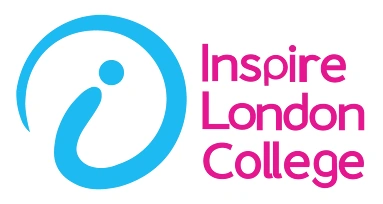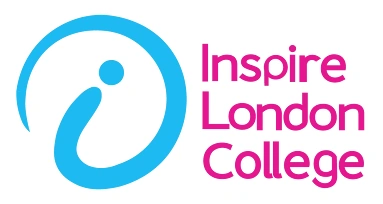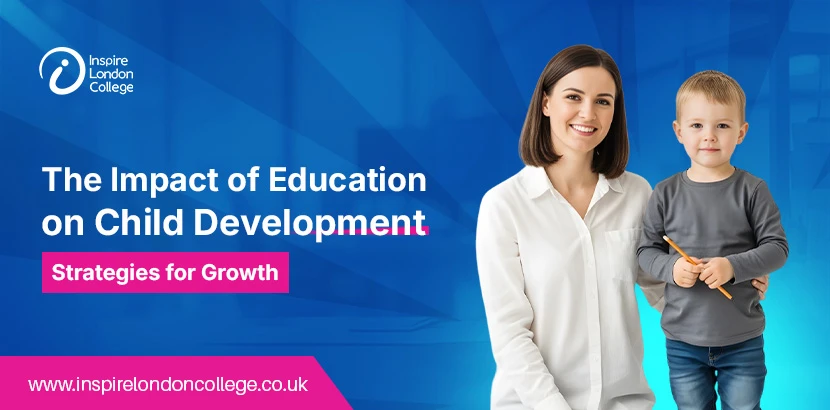Have you ever wondered how much a child’s brain absorbs in the first five years of life? The answer may surprise you. Nearly 90% of brain development happens before the age of five, making early education essential. So, what is early years education, and why does it matter so much? If you’re a parent, educator, or simply someone invested in children’s futures, understanding this concept can help you support the next generation in powerful ways.
Let’s explore the real meaning, importance, and transformative power of early years education and why it’s one of the best investments you can make in a child’s life.
What is the Meaning of Early Year Education?
Early-year education refers to the structured learning, care, and developmental experiences provided to children from birth up to around the age of five before they enter formal schooling. But it’s more than just story time or colouring.
It encompasses everything from language and motor skills to emotional, social, and cognitive development. This stage lays the bedrock for all future learning, behaviours, and even personality. In the UK, early years education is usually delivered in nurseries, playgroups, and preschools, often following frameworks like the Early Years Foundation Stage (EYFS).
The early years are critical because children form neural connections at lightning speed. Consider this phase as laying down the roots before the tree can grow. Without strong roots, the entire structure becomes fragile.
What Does Learning Mean in Early Years?
You might assume learning at this age is about memorising letters or numbers, but it goes far deeper. It’s about exploration, curiosity, and interaction. Children learn through play, storytelling, sensory activities, and social interactions. Every experience, whether it’s stacking blocks, listening to a lullaby, or playing dress-up, contributes to their brain development.
Learning in the early years encourages problem-solving, creativity, communication, and resilience. Unlike traditional learning, early years education focuses on helping children discover how to learn rather than what to learn. When you see a toddler trying to balance building blocks or sing along with a rhyme, they’re not just having fun; they’re forming the foundation for skills they’ll use their entire lives.
Importance of Early Year Education
So why should you care about early-year education? Let’s discuss the significance of early-year education, not just for children but for families and society as a whole.
Research shows that children who receive high-quality early education are more likely to succeed academically, have stronger social skills, and face fewer behavioural issues later in life. According to UNICEF and the OECD, early education improves school readiness and even influences lifelong earning potential. Beyond academics, early education promotes empathy, collaboration, and self-regulation. It provides children with the emotional tools to understand themselves and others. In a world where emotional intelligence is just as important as IQ, starting young makes all the difference.
Benefits of Early Year Education
Have you ever wondered how early years education shapes a child’s future? The impact is far greater than just learning the alphabet or counting to ten. In fact, this foundational stage opens up to a world of growth that reaches well into adulthood. Let’s explore the key benefits that make early education essential for your child’s development:
1. Cognitive Development
From the moment your child enters an early years setting, their brain begins to process new information at an astonishing rate. They start building memory, problem-solving skills, and critical thinking through structured play, storytelling, and hands-on activities. Each new experience stimulates brain connections, helping them make sense of the world. As a result, your child becomes more curious, engaged, and ready to absorb more complex concepts later on.
2. Social and Emotional Growth
Social skills don’t appear overnight. In early education environments, your child learns how to share, take turns, express feelings, and resolve conflicts peacefully. They also form their first friendships outside the family circle. These early emotional experiences teach empathy, boost confidence, and create a strong foundation for positive relationships throughout life. Over time, your child develops a healthy emotional toolkit they’ll carry into adulthood.
3. Improved Academic Achievement
Children who attend high-quality early education programmes consistently perform better once they enter primary school. They begin with stronger literacy, numeracy, and comprehension skills, giving them a clear head start. Structured learning experiences help children adapt more smoothly to formal education. As a result, they often maintain higher academic performance throughout their schooling journey.
4. Enhanced Communication Skills
Early education actively nurtures your child’s ability to express themselves. Whether through storytelling, singing, group discussions, or simple daily conversations, their vocabulary grows rapidly. They learn to listen attentively, respond appropriately, and speak clearly. These communication skills not only support academic success but also help your child feel heard, understood, and valued, an essential part of emotional well-being.
5. Promotes Creativity and Curiosity
Early education focuses on creative exploration. Your child gets to paint, build, imagine, and experiment without fear of failure. Their natural curiosity flourishes through this freedom. They start asking “what if?” and “why?”, which leads to a deeper understanding of the world around them. This sense of wonder becomes a driving force in their future learning experiences.
6. Encourage Independence and Responsibility
Early years settings encourage your child to do things on their own, putting away toys, tidying up, washing hands, or choosing activities. These small responsibilities help them understand cause and effect, consequences, and accountability. Over time, your child gains confidence in their abilities and takes ownership of their actions. This independence builds the groundwork for strong decision-making and self-motivation.
7. Encourages Lifelong Learning
When learning feels fun and rewarding from the start, your child begins to see it as something exciting rather than a chore. Early education instills this positive attitude. Your child discovers that mistakes are part of learning with teachers who encourage exploration and celebrate effort. As a result, they develop resilience, curiosity, and a hunger for knowledge that lasts well beyond the classroom.
8. Support for Families
It’s not just your child who benefits from early education; you do too. High-quality programmes offer valuable support for families, from parenting advice to daily updates about your child’s progress. You’ll feel more connected and confident in your parenting journey. Moreover, reliable childcare makes it easier to pursue work or further education, creating a balanced and stable home environment.
9. Reduces Inequality
Early years education plays a powerful role in leveling the playing field. Regardless of background, every child gets the chance to develop the same essential skills. Access to early education helps close learning gaps before they widen, giving every child a fair shot at success. With the right support in place, your child won’t just catch up; they’ll thrive.
10. Health and Well-being
Quality early education programmes include physical activity, balanced routines, and nutritious meals as essential parts of the daily experience. These elements promote healthy habits from the start. At the same time, your child learns how to express feelings, manage stress, and build self-esteem. Together, these experiences support their mental and physical well-being, which contributes to overall happiness and a strong immune system.
11. Better Prepared for Future Challenges
Life brings challenges to everyone. Through early education, your child develops the emotional and cognitive flexibility to face these obstacles head-on. They learn how to adapt, try again after failure, and trust in their ability to overcome. This kind of resilience doesn’t appear overnight, but with early exposure to structured challenges and encouragement, it grows stronger each day.
12. Economic Benefits
Investing in early education pays off not just for your child but for society. Children who attend early years programmes are more likely to succeed academically, stay employed, and contribute positively to the economy later in life. At the same time, families benefit from being able to work while their children are in safe, nurturing environments. Over time, this reduces dependency on public services and supports economic growth.
Goals of Early Year Education
The goals of early-year education go far beyond teaching ABCs or counting to ten. They’re about nurturing well-rounded individuals who are curious, confident, and ready to face the world. These goals include:
- Promoting Holistic Development: Supporting physical, emotional, intellectual, and social growth all at once.
- Creating a Safe and Stimulating Environment: Children thrive when they feel secure and engaged.
- Supporting Physical Development: Whether children are climbing, painting, or playing games, you encourage movement that improves coordination, balance, and motor skills.
- Introducing Basic Academic Concepts: Instead of memorisation, you blend numbers, letters, and patterns into fun songs, stories, and interactive activities.
- Promoting Lifelong Learning: Creating a safe and engaging environment can help you to inspire children to grow confident, resilient, and eager to learn every day.
- Building Strong Relationships: Learning how to trust and communicate with others sets the stage for positive relationships.
- Preparing for Formal Schooling: Early education bridges the gap between home and school, making transitions smoother and more successful.
Final Thoughts
Now that you understand what early year education is , you can see it’s more than just the first step in a child’s academic journey; it’s a foundation for lifelong growth. From cognitive development to emotional resilience, every experience in these formative years shapes how a child learns, grows, and connects with the world. When you invest in early learning, you don’t just prepare a child for school; you empower them to do well in life. Whether you’re a parent, educator, or simply someone who cares about the future, investing in early education creates lasting impact for every child and for the society they’ll one day lead.










